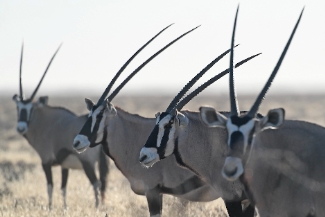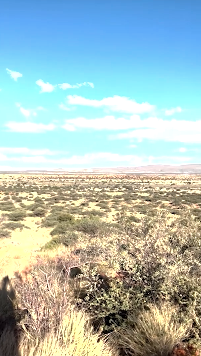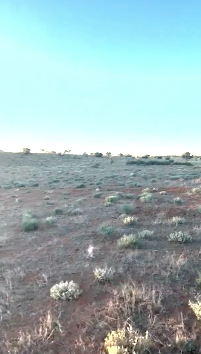When I moved to Tennessee, my cat died. I didn’t talk about it publicly because no one cares when your cat dies. But my cat’s death was traumatizing to me.
I adopted her when I was living alone in New York City. I got caught in a festival while trying to cross the street. At the end of it was a truck with animals who were going to die if they were not adopted. My soon-to-be-adopted cat had her head down, as though she had accepted defeat and was going to die. So, I decided I need that little ball of drama in my life. She was so sweet, practically human, and also so scared. She was afraid of every single sound in the city, and she would run under the bed and hide all the time. And she remained a true scaredy cat when we moved to Connecticut, Pennsylvania, and Washington, D.C. But when we moved to Tennessee, something changed. Maybe the air was different, but she started just bolting outside. Every day she would go a little farther in the backyard. She had been terrified of everything and all of a sudden she was trying to get outside. One night, she ran out and did not come back; two coyotes killed her on our front porch. It was devastating. She didn’t know the outside. Four years old but she had never lived outside. She didn’t even know what a coyote was.
Over the past few years, I have felt more and more like we aren’t even human anymore; we are more like droids and robots, walking around and not even knowing our surroundings. Around the time we came to Tennessee, I started really leaning into my humanity, wanting to know how to survive. I began growing my own food, raising chickens, and hunting — but it took me a while to come around to hunting. I had grown up thinking it was horrific, and I was against it on a spiritual level. But the reality was, I knew nothing about hunting at all. In fact, most people who think hunting is terrible don’t know the truth, which is that hunters are, in fact, the number one animal conservationists on the planet — not vegans.
The reason hunters buy into a hunt is because they are either saving an animal or they are saving humans. In Africa, for example, lions often become overpopulated in various regions. When that happens, they begin attacking and killing entire villages of Africans — and they do it in as little as minutes. Hunters can then buy into a hunt because the region needs the population of lions to go down. Otherwise, Africans continue to get slaughtered. Hunters will pay a million dollars to hunt one lion, and that money goes directly to save other animals. There are serious restrictions around hunting: what animals can be hunted, the cost to pay for the hunt, certain types must be bulls, species numbers cannot be low, and so on. You could never kill a black rhino, for example, because there are few in the world.
These hunters know about the wilderness. They actually care about the animals and are often trying to preserve other animals. Poachers, however, are a different story. There is a gaping difference between poachers and hunters. When hunting is banned, it becomes open season for poachers. Poachers will land a helicopter in the middle of a field in the dead of night, take a rhino’s horns, and leave it to bleed to a slow death. Poachers love hunting bans because bans mean no hunters. Poachers are scared of hunters because a hunter will shoot a poacher — but if hunters can’t hunt, poachers have free reign.
WATCH: Candace Owens
All this new-to-me information, coupled with my desire to learn to survive in the wilderness, made me want to learn how to hunt my own food. So when I went to South Africa earlier this year, I decided it was time. Plus, what better place to hunt than a place where the meat is turned into food for the villagers? (That is what happens with every hunter: Every piece of animal meat is used for the Africans’ survival.) The morning we left on our hunting excursion, I felt different; I knew this was going to be successful, and I knew that I could do it. I felt good about my practice shots at the shooting range in the Kalahari Desert, and I decided I wanted to shoot gemsbok. A tracker is present on the hunt, of course, and they can see animals no one else can. They know the land, the animals, the expectations. They also warn you of the dangers because it’s Africa, not an American zoo where animals are imprisoned for viewing pleasure. These animals are in the wild and they are wild. They told us critical information, like why to stay away from a rhino and its calf. While white rhinos are safe, they will still charge if they think their young is threatened. Any of these animals will attack if that’s the case.

African Gemsbok. Owens.
When we made it to our location, our tracker pointed out the gemsbok. Though he could see them, I could not until we had run quite some distance and were probably within 500 meters of them. The tracker told us the wind was not good — right as I was thinking how great it felt. We were in the desert, it was hot, and the wind felt like a small sprinkling of relief from the heat. But the wind was not “good” because the gemsbok caught our scent — and vanished. I realized quickly that everything becomes a predator; the elements are a predator. The wind drives the animals off, the terrain is rugged, and the blazing sun is an hourglass ticking away time. The obscure bushes cover the land as they protect the animals and clawed at us as we passed. The sand is a deep red, deceivingly beautiful as it is unbelievably difficult to trek through. But even with the battle against the elements, I was acutely aware that this was a special moment, and I did not want to forget it. I wanted to pause and create memories in my head. While the elements don’t work in your favor, the landscape is breathtakingly beautiful.

Owens.
When the tracker spotted another gemsbok, we started to run which quickly became a sprint as we tried to keep up with him. My husband was in front of me, holding the rifle, and I was giving it my all. I kept thinking about how I wake up every morning and run on the treadmill — and in this situation, it was utterly meaningless. Nothing can compare to running across this terrain. It seemed that everything I was wearing was wrong, including my shoes, and when my husband would look back, I would whisper as we continued running, “Go, go ahead. I’m fine.” I wasn’t fine. But, I felt so alive. I had a burning in my chest. And while the treadmill didn’t touch this exercise, I still knew this was the point of why I train — because these are the things that actually matter. This is the reason God designed us with this body and with this ability to run: to run after prey and to run from predators.
In the middle of these thoughts and in the middle of my sprinting, my heart felt like it stopped: I suddenly realized we were completely surrounded by rhinos. They were only about ten feet away from me, and I froze in my tracks. Questions raced through my mind: Does the rhino have a calf? Does she think I’m crossing her? Where is the baby? Is there a baby? I started scream whispering to my husband, trying to get his attention by jumping, all while feeling as though my feet were cement. I was terrified. The tracker assuaged my fears, telling me the rhinos have bad vision and they did not have any calves with them. We kept running.
I was overcome wishing I could live this day over and over. Everything matters in these moments. It’s either hunt or be hunted. My senses were heightened, my adrenaline was pumping, and I felt alive. It was as if nothing else mattered outside that moment, outside of that hunt. I thought back to my cat and realized this must be how she felt. When we came to Tennessee, she finally became a cat. As I was running through the Kalahari Desert in Africa, I finally felt human.

Owens.
We ran for an hour and a half, stopping, pausing briefly — but the journey felt like it was only 10 minutes. Finally, I looked up, and I saw her in the distance. And I just knew. I knew I was going to get that gemsbok. The shot was 250 meters away, and the tracker helped me set up, told me to take a deep breath, and instructed me to be calm. But I wasn’t nervous at all. I felt incredibly calm and so sure of myself in that moment. I took a deep breath, fired, and shot the animal directly. When we ran to her, we discovered she was a queen; she would go in a record book because she had horns.
I am smiling in the photos I took with her. I used to wonder how people could smile next to an animal that’s dead, that they’ve killed. But I want to make it clear: I was not gloating that I killed an animal. I smiled because of the beauty in it. This experience gave me a tremendous respect for life — and for death. I reached another level of my own development. In these photos, I don’t see a person who just wants to believe food comes from a grocery store; I see a person who can now hunt her own food. And that’s what this animal did: The meat in these pictures went on to feed African children in nearby villages, children who are ecstatic when hunters come because they know they will eat.
I don’t want to be a conservative coward who will not post nor talk about hunting for fear that people will not understand. I’m proud. I am tremendously proud of this moment. And I know in the future, all my children will learn to shoot, hunt, and live off the land. When things get bad — and they will because good and bad times are cyclical — I want to know how to survive. We live in times of prosperity, but we have also seen grocery stores with shelves cleared. The vegans won’t be the ones to survive if times get tough. It’s the hunters who will be able to survive.

Continue reading this exclusive article and join the conversation, plus watch free videos on DW+
Already a member?

.png)
.png)

